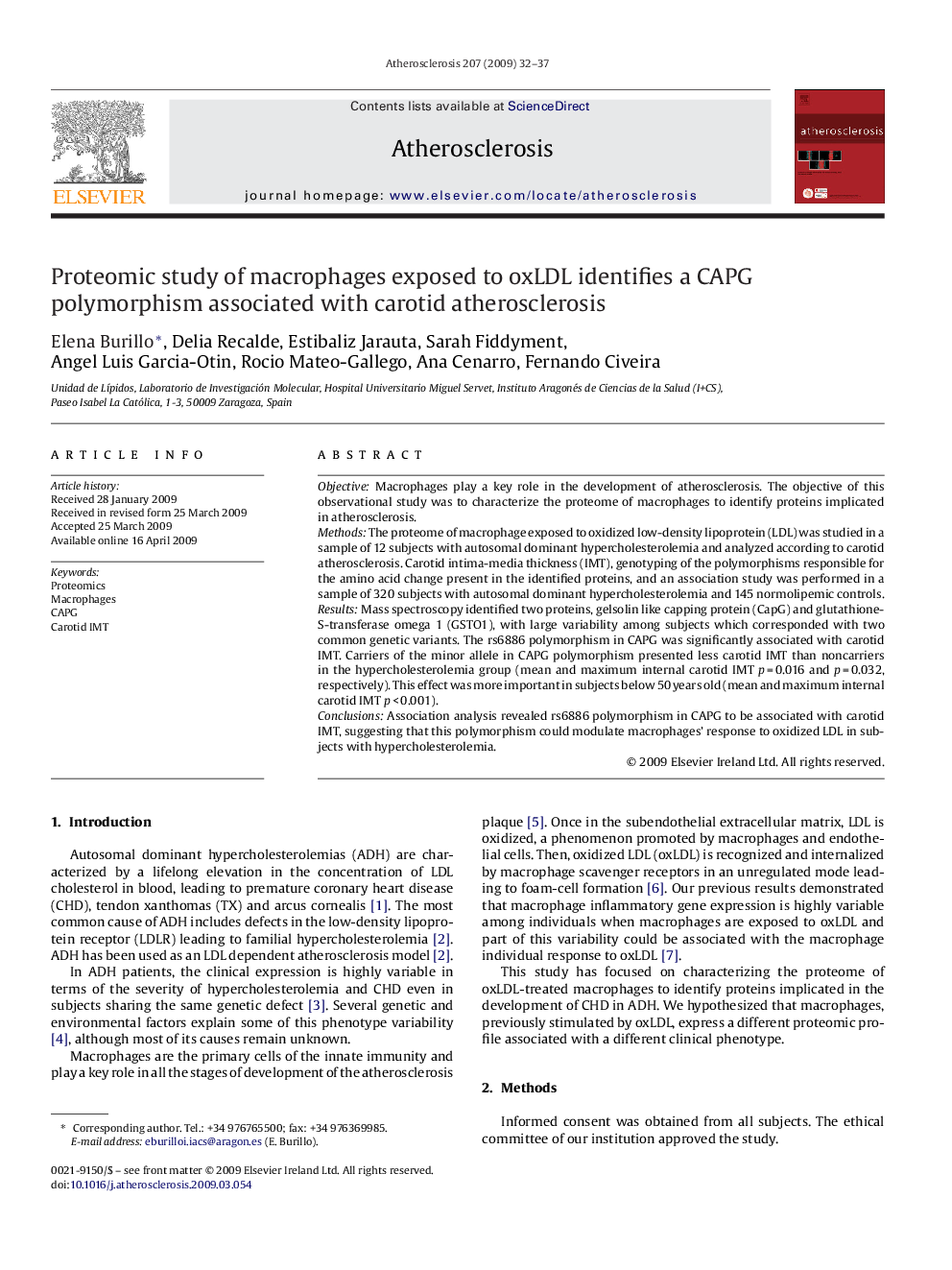| Article ID | Journal | Published Year | Pages | File Type |
|---|---|---|---|---|
| 2893854 | Atherosclerosis | 2009 | 6 Pages |
ObjectiveMacrophages play a key role in the development of atherosclerosis. The objective of this observational study was to characterize the proteome of macrophages to identify proteins implicated in atherosclerosis.MethodsThe proteome of macrophage exposed to oxidized low-density lipoprotein (LDL) was studied in a sample of 12 subjects with autosomal dominant hypercholesterolemia and analyzed according to carotid atherosclerosis. Carotid intima-media thickness (IMT), genotyping of the polymorphisms responsible for the amino acid change present in the identified proteins, and an association study was performed in a sample of 320 subjects with autosomal dominant hypercholesterolemia and 145 normolipemic controls.ResultsMass spectroscopy identified two proteins, gelsolin like capping protein (CapG) and glutathione-S-transferase omega 1 (GSTO1), with large variability among subjects which corresponded with two common genetic variants. The rs6886 polymorphism in CAPG was significantly associated with carotid IMT. Carriers of the minor allele in CAPG polymorphism presented less carotid IMT than noncarriers in the hypercholesterolemia group (mean and maximum internal carotid IMT p = 0.016 and p = 0.032, respectively). This effect was more important in subjects below 50 years old (mean and maximum internal carotid IMT p < 0.001).ConclusionsAssociation analysis revealed rs6886 polymorphism in CAPG to be associated with carotid IMT, suggesting that this polymorphism could modulate macrophages’ response to oxidized LDL in subjects with hypercholesterolemia.
